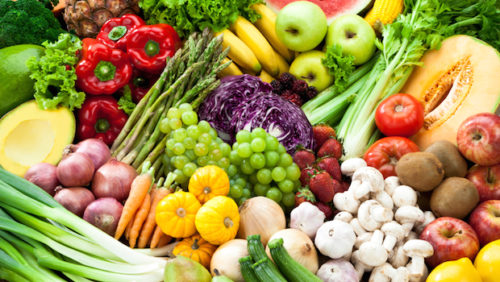Well-respected local Dietitian Angela Berrill is also a nutrition educator. Below she offers 8 great tips to boost your immunity and keep you well in the wake of the Covid-19 pandemic.
Angela writes
Although there are no specific foods or supplements that will stop viruses and winter bugs from striking, here are 8 simple steps you can take to ensure your immune system is functioning at it’s best…..
1. Eat mostly whole and less-processed foods.
While there is no direct evidence that catching a cold or the flu is related to our diet, nutrition is essential for maintaining the body’s immune function. There are a variety of nutrients in food that can support the immune system and whole foods naturally contain plenty of these nutrients. For optimal health, the Heart Foundation recommends you eat plenty of vegetables and fruit, some whole grains in place of refined grains, legumes, nuts, seeds, and other sources of healthy fats such as oily fish. You may also choose to include non-processed lean meats, poultry and/or dairy.

2. Eat fruit and vegetables from a rainbow of different colours.
Did you know each different colour provides you with a different array of nutrients? That’s right, so make sure you include plenty of green, red, purple/blue, yellow/orange and white/brown fruits and vegetables in your diet every day. Some examples of the immunity boosting nutrients found in fruit and vegetables includes:
- Vitamin A (or carotenoids) is what gives fruits and vegetables their yellow/orange colour, so foods like pumpkin, carrots and kumara are naturally a rich source of this nutrient. However, you can also find vitamin A in some green foods, such as dark green leafy vege, because chlorophyll which makes them green, can mask the yellow/ orange colour. Milk and eggs are also good sources of vitamin A.
- Vitamin C is not only found in citrus fruits, like oranges, but it also found in kiwifruit, capsicum, tomatoes, potatoes, berries and broccoli.
- Phytonutrients are compounds found naturally in plants. Phenolics (found in most fruit and vegetables) and flavonoids (berries, onions, Brussels sprouts, citrus, kale and parsley) are common phytonutrients which are known to have immune benefits.
3. Choose mostly whole grains, with the grain still intact, rather than refined grains
While many of us only think about their superior fibre content when we think of whole grains (such as oats, barley, rye, quinoa, buckwheat and brown rice), they also contain many vitamins which can also help to support our immune system. These nutrients include:
- Vitamin B6 – which is also found in vegetables and meat
- Vitamin E – also found in nuts and vegetable oils
- Zinc – also found in nuts, beans, dairy products, meat and shellfish
4. Make sure you’re getting enough selenium
Unfortunately, our New Zealand soils are low in this nutrient, meaning our fruit and vegetables are not good sources of selenium, unlike those grown in many other countries. Selenium is another mineral which helps to support the immune system.
It is found in Brazil nuts and eating just two a day, will help you meet your daily selenium requirements.

5. Look after your gut
Did you know that ~70% of your immune system is localised in our gut? That’s why it’s super important to make sure that we look after the health of our gut. Having a diet rich in vegetables and fruit, and including whole grains for added fibre and prebiotics, will help to keep your gut functioning at its best. We can also look after our guts by feeding them with good bacteria (probiotics) to help restore the balance of healthy bacteria in the gut microbiome.
Probiotics are live bacteria which provide us (their host) with a proven health benefit. Examples of probiotics include Lactobacillus and Bifidobacterium. Probiotics can be found in some fermented milk products, such as yoghurt, kefir, kombucha, kimchi, nato or sauerkraut. However, not all fermented foods contain probiotics and not all Lactobacillus or Bifidobacterium have probiotic activity.
6. Keep hydrated.
Another aspect of nutrition not to be overlooked is your fluid intake. Keeping well hydrated is crucial for easing the symptoms of colds and flu as it prevents the throat and nose lining from drying out. Warm fluids are especially helpful as they can help moisten your throat and loosen mucus. Honey drinks have been shown to ease coughing. Try to drink at least 8 glasses of fluid each day. This includes the water found in a glass of plain water, cups of tea/coffee, soups and other beverages.
7. Get enough sleep
For all the parents out of here, this can sometimes be a very tough ask as your sleep patterns are not your own. However, research shows that when we are well-rested our immune system benefits. When we are running on empty and in a sleep deficit, our immune system can suffer, leaving us more susceptible to picking up bugs.
8. Maintain good hygiene practices
Good hygiene is essential to helping you stay safe and well from viruses and harmful bacteria. To maintain good hygiene:
- If you are sick, cough into your arm (rather than hand) and make sure you regularly blow your nose
- Wash your hands regularly, for at least 20 seconds, especially if you have just blown your nose or been in contact with anyone who is sick
- Avoid close contact with those that are already sick, including keeping your physical distance (2m) from others if you are sick yourself
- Keep surfaces clean
- Follow sound food safety practices.
And finally, please keep safe and well out there xx
As an expert nutritionist and dietitian, Angela has been acting as a spokesperson providing nutrition comment in the media for over a decade. Angela regularly appears on the TV, including on TV 3’s The AM Show, and she has given numerous media interviews (TV, online, print and radio), both here in New Zealand and overseas. Angela is an accomplished freelance nutrition and health writer, who has written an extensive range of articles on a wide range of topics. She is a regular feature writer for the Healthy Food Guide and was previously a monthly contributor to both the Good Health Choices and HealthWise magazines.
You can find more great health & eating tips from Angela and her team at abcnutrition.co.nz








